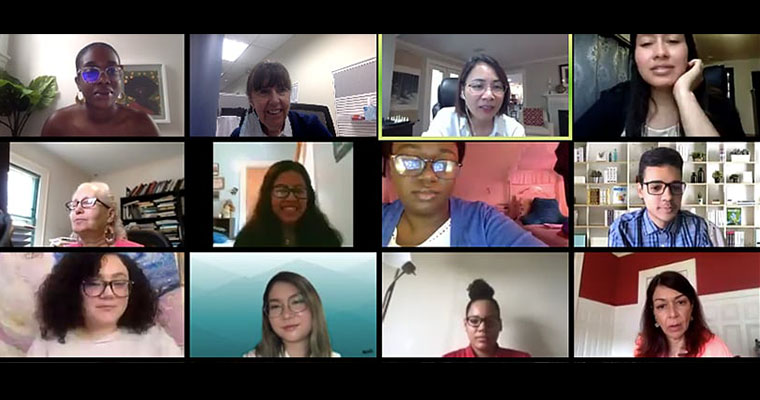UMass Dartmouth CVPA Professor Rebecca Hutchinson (Art & Design) is being featured in the groundbreaking exhibition Particle & Wave: PaperClay Illuminated. This is the largest and first international traveling paperclay exhibition in the world, with a selection of artists from five different continents.
Paperclay is created by mixing paper pulp and other organic fibers into clay. This makes the clay both stronger and lighter, allowing artists to sculpt in ways that would not be possible using traditional methods.
Dear Members of the UMass Dartmouth Community,
The Sustainable Solutions Lab at UMass Boston has awarded two research grants to project teams that will focus on groups that are often overlooked when evaluating the impacts of climate change.
These projects are led by interdisciplinary teams of faculty members affiliated with the lab’s partner colleges, schools, and institutes. As climate impacts become more and more severe, the Sustainable Solutions Lab is working to expand research literature that speaks to the needs of those most vulnerable to climate change.
Assistant Professor of Chemistry Niya Sa has been awarded the Faculty Early Career Development, or CAREER award, from the National Science Foundation (NSF) to understand the interfacial challenges of new battery materials, which is closely related to the development of next generation rechargeable battery technology.
As a nursing student at UMass Boston, Alyssa Banks spends countless hours learning how to care for patients. But every Wednesday she trades in her textbooks for a wig and gown and practices a different kind of medicine.
Banks, 21, is the founder and CEO of the Princess Program Foundation, an organization that aims to bring a little magic to the lives of children battling serious illnesses by giving them one-on-one time with their favorite princesses or superheroes.

A team of faculty mentors made it possible for 12 undergraduate students to engage in a hands-on research experience this past summer through the Caregiver and Child Health (CatCH) Scholars program, despite having to go remote due to the coronavirus pandemic.
UMass Boston’s graduate programs in sociology, education, nursing, and public affairs are ranked as top 100 programs on U.S. News & World Report’s 2022 Best Graduate Schools list, released this week. The biggest jumper is UMass Boston’s graduate programs in education, up 14 spots from the 2021 list.
UMass Boston junior Sarah True has received the prestigious Barry M. Goldwater Scholarship. This is the third year in a row that UMass Boston students have been named Goldwater Scholars; four students have received the honor.
The Goldwater Scholarship is given annually to college sophomores and juniors who demonstrate excellence in natural science, engineering, and mathematics. This year it was awarded to 410 students across the country out of 1,256 nominations.

The Center for Women in Politics and Public Policy (CWPPP) at UMass Boston has announced the selection of its third cohort of Distinguished Public Servic
The National Science Foundation (NSF) recently announced that thirteen UMass Amherst students and alumni have received awards from the Graduate Research Fellowship Program. The program provides three years of support during a five-year fellowship period.
Students currently at UMass who received the award include: